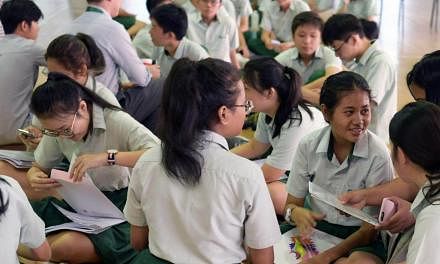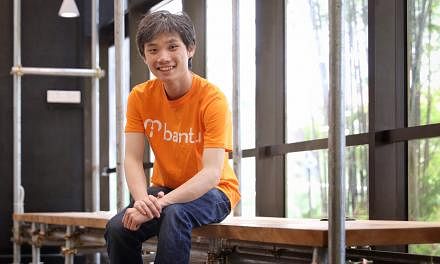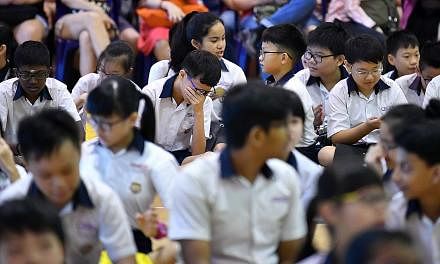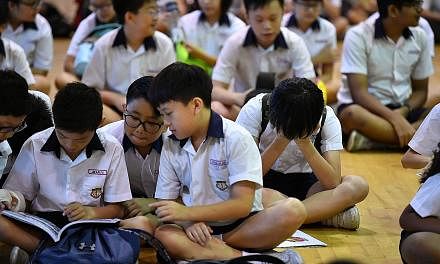The move from streaming to subject-based banding is meant to recognise that every student has strengths and weaknesses, and will allow for further customisation of the education system to address this, Education Minister Ong Ye Kung said yesterday.
To overcome the stigma that some parents remain concerned about, society will have to play a part too, he added.
Seeking to address public feedback that the move would perpetuate stigmatisation, but in a different form, Mr Ong said stigmatisation is not a government policy, but a societal response.
"Society also has the responsibility to now recognise that we all have different strengths and different skill sets," he told reporters on the sidelines of a grassroots event in Sembawang GRC, where he is an MP.
Mr Ong added that the education system is trying to cater to these strengths, and not label students.
"Labels are everywhere, we are categorised in everything we do. Whether we want to create a wall between different people, it is really up to us as a society," he said.
During the debate last Tuesday on the Ministry of Education's budget, Mr Ong announced that the Government would be doing away with secondary school streaming, which has been in place for almost 40 years.
By 2024, the Normal (Academic), Normal (Technical) and Express streams in secondary schools here will be replaced by full subject-based banding, where students will take up subjects at higher or lower levels, based on their strengths.
Streaming has often been criticised for fuelling the labelling and stigmatisation of students assigned to the slower Normal streams.
Mr Ong pointed to the replacement of streaming with subject-based banding in primary schools in 2008, which he said helped to tailor primary education to pupils at a subject-based level.
"It worked well, and the stigmatisation is more or less gone in primary schools," he added.
He said there is "no reason" this would not work now for secondary schools, noting that similar changes had been tested at the secondary level over the past decade.
Asked what is being done to ensure employers would not now stigmatise potential employees based on subject bands, Mr Ong said he believed that with the Government taking the lead, that would help point Singaporeans in the right direction. "We are not helpless in combating this," he said.
This is happening only in 2024 as any changes to the education system will have an "immense impact" on students in the longer term.
As such, the authorities have to take care when implementing these changes, said Mr Ong. But while a complete switch to the new system will happen only in five years, big changes are taking place in the lead-up, he pointed out.
Beginning with an initial 25 schools practising full subject-based banding next year, this will be expanded to other schools over the years, he said.
Mr Ong also described the revamping of classes and timetables as a "complex operation" that will take schools time to implement.
He noted that Edgefield Secondary School in Punggol - which introduced subject-based banding this year - had gone through more than 100 permutations before settling on an optimal timetable.
Mr Ong added that he was confident teachers would adapt well to the new system.
"The passion and belief of teachers is everything. We wouldn't be able to do this without the full support of teachers," he said.

















